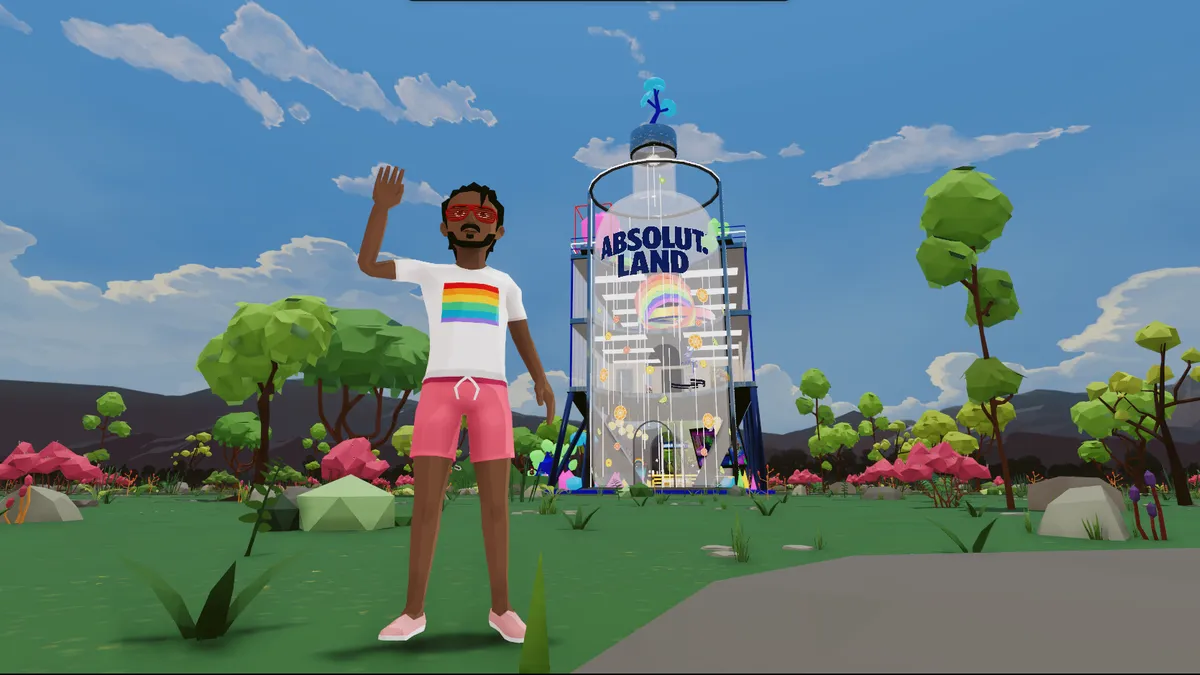Dive Brief:
- Virtual shopping experiences are a precursor to what a fully interoperable metaverse could be, although the concept has yet to mature, according to a Forrester report shared with Retail Dive.
- The research firm predicts that 10 years from now, shoppers will have very immersive experiences, but still won’t have the ability to move freely between virtual environments with their belongings.
- The company notes in the report that “just because the technology is available, that doesn’t mean consumers will adopt, use, or even feel comfortable with metaverse or metaverse-precursor experiences.”
Dive Insight:
Virtual shopping experiences are wrongly being labeled as the metaverse, according to Forrester.
Although retailers and brands have launched virtual shopping on Roblox, the report says these experiences have been mislabeled because, “they do not allow consumers to travel or move among disparate environments with their belongings.”
“Even two to three years from now, there will still be no metaverse, but immersive experiences will be more personalized and social. Shopping experiences may extend beyond a single brand, but consumers’ movement will be limited to a single platform or community,” says the report.
Nonetheless, brands are eager to step into virtual shopping experiences and often label them as part of the metaverse. Gucci, Tommy Hilfiger and Pacsun have all launched virtual shopping experiences in platforms like Roblox this year. In fact, Crate and Barrel named a senior vice president of the metaverse in May.
The report comes after a McKinsey study predicts that the metaverse will have up to $2.6 trillion in value for e-commerce by 2030. While the survey results showed 64% of consumers indicated they were excited or very excited about shopping in the metaverse, other research from Wunderman Thompson Intelligence showed that consumers have little understanding of what the metaverse even is.
Brands often conflate the concept of Web3 – a new stage of the internet driven by blockchain technology – with the metaverse as well. For example, Alo Yoga’s press release shared with Retail Dive about accepting cryptocurrency payments stated, “Today’s announcement is not Alo’s first foray into the Web3 space, having partnered with gaming platform Roblox earlier this year…”
The Roblox virtual world platform is not built on blockchain technology. Additionally, Alo Yoga's virtual wellness space on the platform did not specifically mention the usage of blockchain technology – a component needed for it to be considered part of the Web3 concept.
The recent McKinsey study specifically made note that the metaverse is not inherently Web3. “[W]hile Web3 contributes to the metaverse by espousing decentralization and interoperability, it’s not the metaverse…” per the report.















